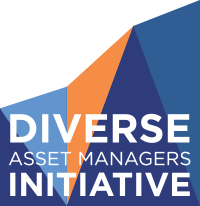DAMI Applauds Knight Foundation Report to Compel Universities to Share Endowment Data
April 24, 2024 - The Knight Foundation recently released revealing data from a comprehensive two-year investigation into the diversity practices in asset management at 50 of America’s most affluent public and private universities, which collectively oversee assets totaling $566 billion. The findings are a stark reminder of the ongoing struggles within the higher education sector to embody the values of diversity and inclusion they often promote.
Robert Raben, Executive Director of the Diverse Asset Managers Initiative - an effort to bolster racial and gender representation in the asset management industry - praised the Knight Foundation for its singular leadership in making a difference in this area, and issued the following response:
“The majority of institutions refuse to say whether and how they work with women or people of color. It’s appalling; they are centers of excellence, live by diversity in every aspect of their functioning, but are flat out indifferent to a conversation about the full range of talent when identifying high performing firms to manage their endowments. You either work with women or Black people or Latinos or you don’t, why the reluctance to answer the question?”
Nearly half of the surveyed institutions chose not to provide any data. Of those that did, only 11 reported that women or people of color manage more than 20% of their assets. This lack of transparency and accountability highlights a significant disparity between the proclaimed and practiced values of these educational institutions.
This issue of non-disclosure is not isolated. Almost four years ago, Congressman Emanuel Cleaver (D-MO) sought similar information from the top 25 universities with the largest endowments. His efforts have evolved into the Endowment Transparency Act, spearheaded alongside Senator Cory Booker (D-NJ), which seeks to enforce higher standards of transparency and accountability for universities benefiting from federal tax exemptions.
Research has consistently demonstrated that diverse asset management teams often achieve superior performance results. The reluctance of these institutions to embrace diversity in their asset management not only contradicts their stated commitments to inclusivity but also neglects their financial and fiduciary responsibilities.
“Knight’s leadership is singularly valuable; it’s an example of one institution transforming an entire sector. DAMI applauds the ongoing efforts to bring these issues to light and remains committed to working with key stakeholders to ensure that educational institutions not only meet their legal obligations but also live up to their moral and ethical standards,” Raben stated.“We can no longer just reflect on these findings; we must act. It’s time for regulators and media to get involved. You can’t have vibrant modern institutions be successful in our pluralistic society when those institutions refuse to say how and whether they work with women or Black people. Everyone connected to these institutions should be outraged and demanding greater transparency and accountability.”
###
The Diverse Asset Managers Initiative is an effort to increase the absolute number of, and assets under management by, diverse-owned asset management firms for institutional investors, with a specific focus on public, corporate, faith, and labor union pension funds as well as foundation and university endowments.
